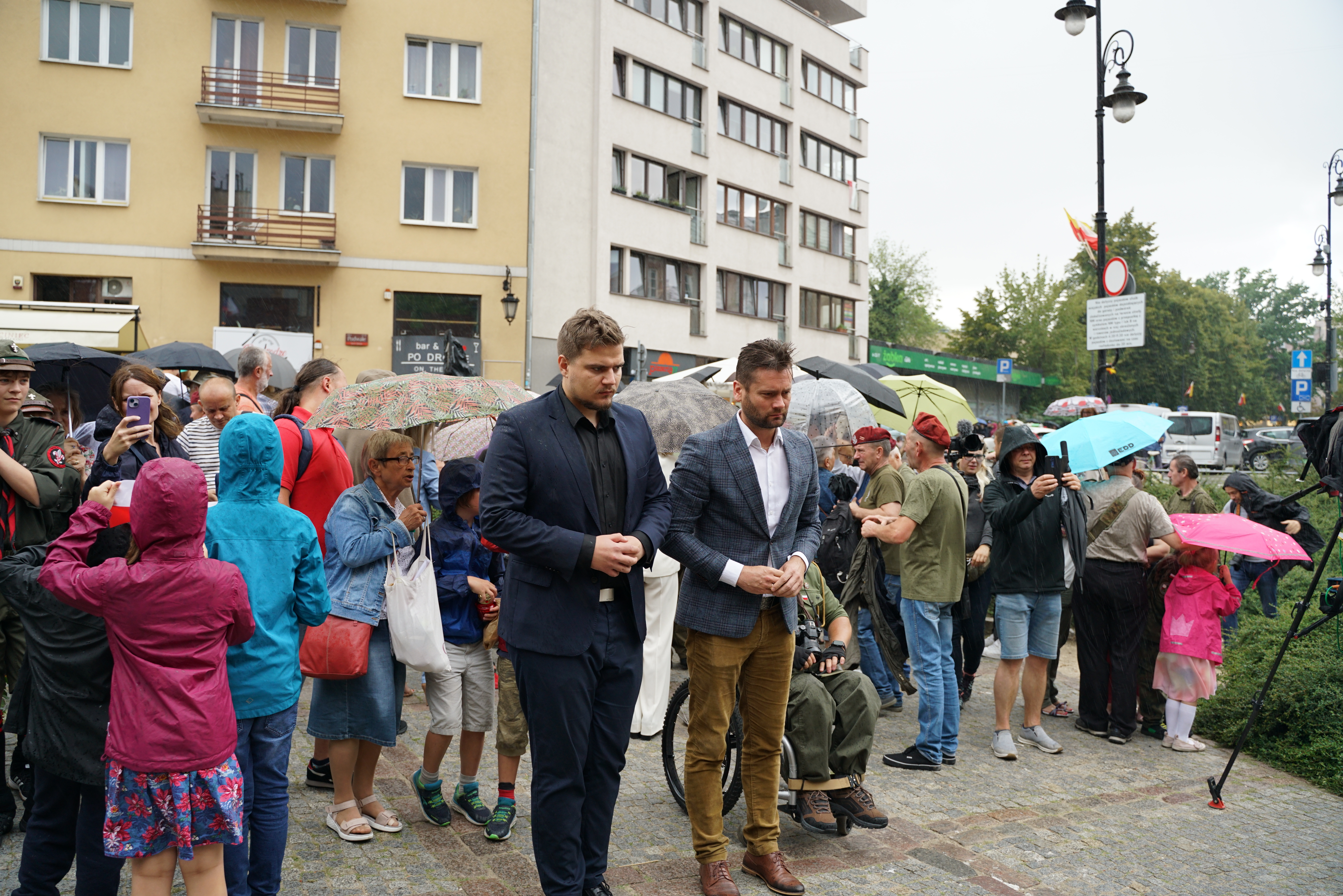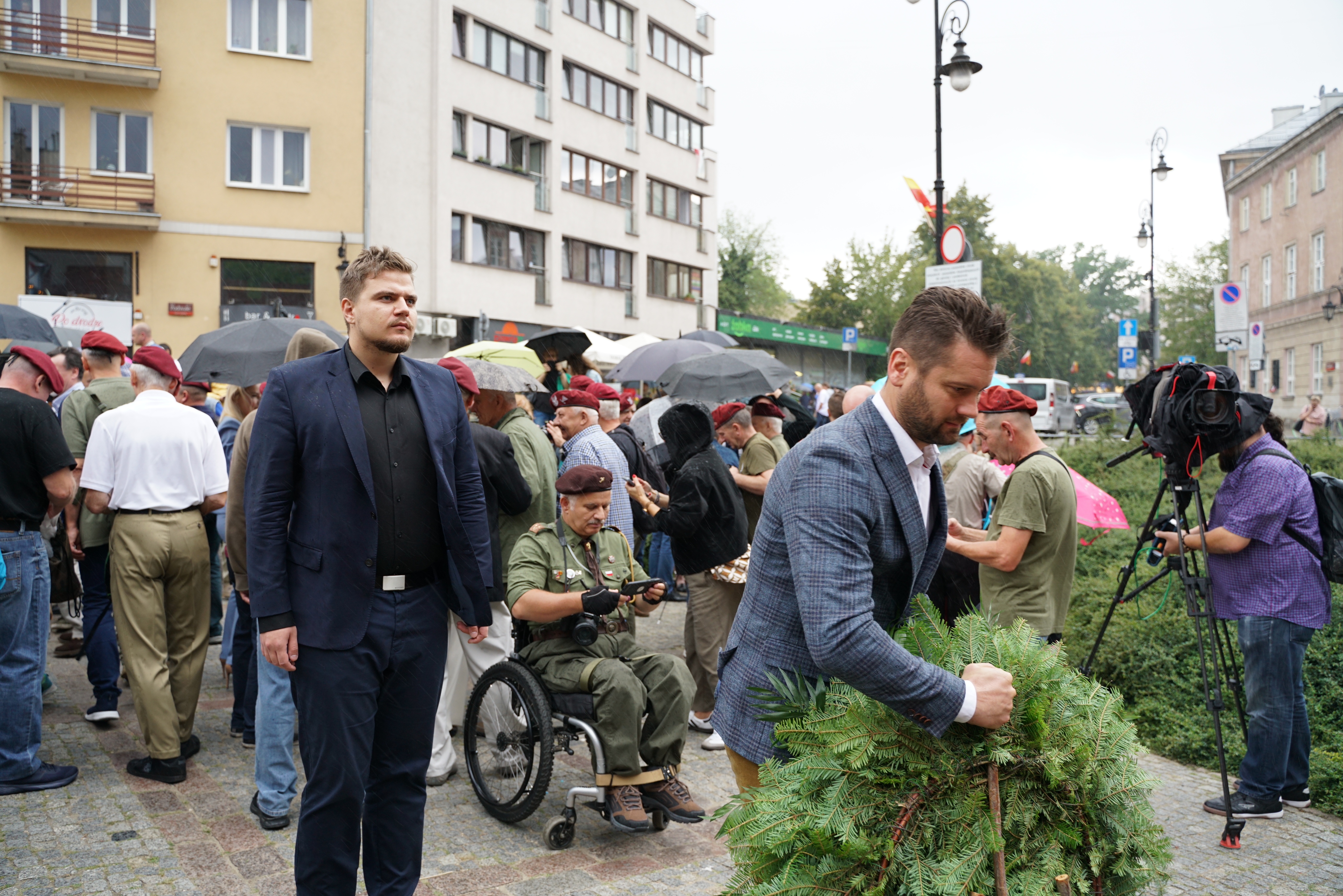79th anniversary of the outbreak of the Warsaw Uprising
01.08.2023
The Warsaw Uprising began on 1 August 1944 at 5pm, following a decision by Home Army Commander General Tadeusz Komorowski 'Bór'. On the 79th anniversary of the event Minister of Sport and Tourism Kamil Bortniczuk laid flowers at the bust of Krzysztof Kamil Baczyński and the plaque to his memory, and at the Monument of the Little Insurgent.

Krzysztof Kamil Baczyński belonged to the first generation born in post-partition independent Poland. He was a Polish poet and a Home Army soldier. He was killed on 4 August in the Blanka Palace, the current headquarters of the Ministry of Sport and Tourism, by a German sniper firing from the Grand Theatre building. Originally, K.K. Baczynski was buried behind the Blanka Palace. The plaque commemorating his tragic death was built into the front wall of the building at 14 Senatorska street in the 1950s.
On 1 August 1944, about 40 - 50 thousand insurgents set off to fight. Among those fighting to liberate the capital city were famous Polish athletes, including Olympians.
Twenty-seven Polish Olympians fought in the Warsaw Uprising. Among them were generals as well as ordinary soldiers. The Home Army was commanded by general Tadeusz Komorowski alias 'Bór', an excellent equestrian and a participant of the 1924 Olympic Games in Amsterdam. The commander of the famous Kiliński battalion was captain Henryk Roycewicz, an Olympic medallist. Many companies were commanded by top-level athletes. (...)
Apart from Roycewicz five other Olympic medallists fought in the Uprising: Maria Kwaśniewska, a bronze medallist in javelin throw (Berlin 1936); Edward Kobylinski, a bronze medallist in rowing at the 1932 Games in Los Angeles; Jerzy Ustupski, a bronze medallist in rowing at the1936 Games in Berlin; and Tadeusz Friedrich and Adam Papée, fencers, team bronze medal winners at the 1924 Games in Paris and the 1928 Games in Amsterdam (...), according to the dzieje.pl website.
The Warsaw Uprising, the greatest act of resistance in Nazi-occupied Europe, lasted until 3 October 1944. For 63 days, the Warsaw insurgents put up a heroic and lonely battle against the German army, fighting for independent Poland free of German occupation and Soviet domination.
On 1 August we pay tribute to the heroes of the Warsaw Uprising. On that day in 1944, one of the most heroic battles for sovereign, free and independent Poland started. Every year on 1 August we commemorate the Warsaw Uprising insurgents and the people of the city who provided support to them. We remember and will continue to remember their sacrifice, suffering and bravery, said Minister of Sport and Tourism Kamil Bortniczuk.
Honour and glory to the Warsaw Uprising heroes!
Walking tour “In the footsteps of the Warsaw Uprising”
We encourage you to use the free application MonumentApp and take a walking tour In the footsteps of the Warsaw Uprising. The tour presents 63 unique places connected with the history of the Warsaw Uprising.


